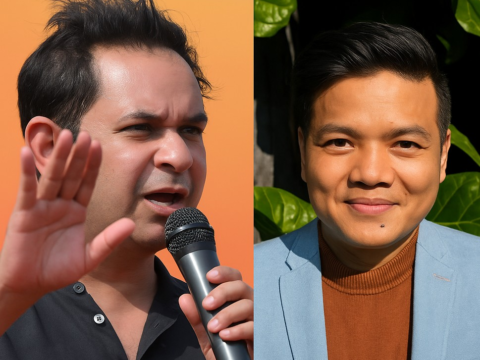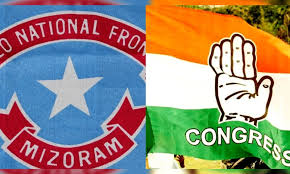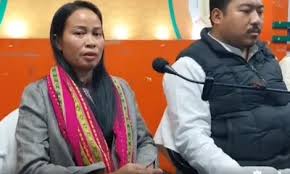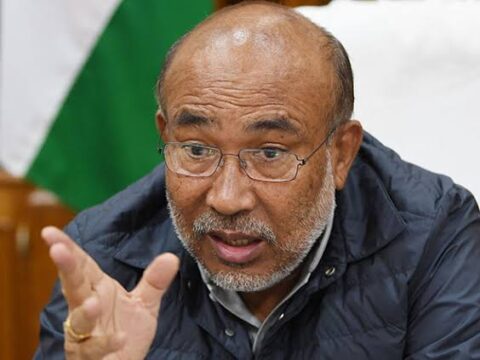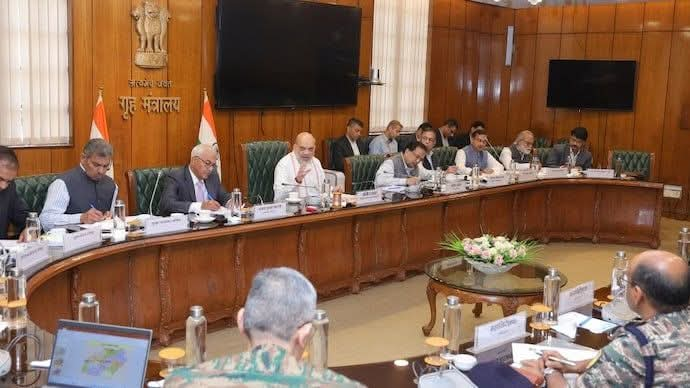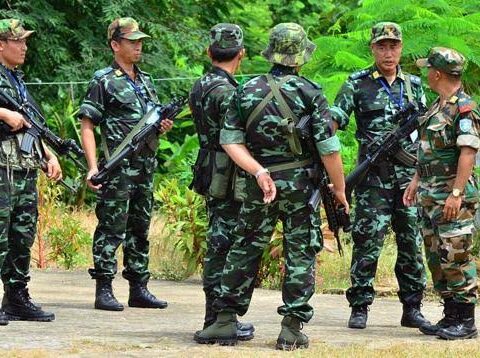Northeast Diary
Churachandpur, March 2, 2025
The Kuki Organization for Human Rights Trust (KOHUR) has strongly objected the recent peace efforts by the Union Home Minister and the Governor of Manipur, stating that any attempt at reconciliation without ensuring justice for Kuki-Zo victims would be a “futile attempt.”
In a press release issued today, KOHUR condemned the government’s handling of the ongoing ethnic conflict in the state, accusing it of overlooking grave human rights violations while favoring the Meitei community.
KOHUR highlighted that despite large-scale violence, ethnic cleansing, and destruction of Kuki-Zo villages, no significant legal action has been taken against the perpetrators. The organization expressed deep concern that Meitei extremist groups, such as Arambai Tenggol and Meitei Leepun, continue to function with impunity. “The surrender of looted firearms may appear as a step in the right direction, but it sets a dangerous precedent,” the statement read.
“The Meitei community looted large portions of state armories, using them to carry out ethnic violence. Yet, those responsible remain free without consequences.”
No deterrence mechanisms have been put in place to prevent such acts in the future. Instead of holding these groups accountable, the government has engaged them as stakeholders in peace talks, further reinforcing the notion that they can act with impunity, added the statement.
Highlighting the disparity in maintaining law and order, KOHUR stated that the Armed Forces (Special Powers) Act (AFSPA) has been enforced in Kuki-Zo-dominated hill areas, while most of Imphal Valley remains exempt. Given that the valley was the epicenter of orchestrated attacks on Kuki-Zo villages, KOHUR questioned why AFSPA was not imposed there earlier.
The organization alleged that the BJP-led central government has taken a partisan stance in the conflict. “The Justice Ajay Lamba Commission, set up under the Ministry of Home Affairs (MHA), has yet to release its report, while a Supreme Court-monitored judicial inquiry remains stalled with no known arrests for mass violence, gang rapes, and other heinous crimes,” the statement noted.
Meanwhile, Kuki-Zo volunteers defending their communities are being relentlessly pursued by security forces, while Biren Singh continues to enjoy political protection, KOHUR alleged.
The Kuki right group also raised alarm over the forcible removal of defensive bunkers and the reopening of roads without prior reconciliation. The organization warned that these actions could expose Kuki-Zo civilians to renewed attacks, as highways remain unsafe. “If the government now claims that the area is secure, why did it not act earlier, before entire villages were burned?” the statement asked.
The cries of our slaughtered brethren still haunt us. If the Government of India failed to protect them, the least it owes them now is justice. Peace cannot be imposed but must be a gradual process at the individual, family, and community levels, it added.
The organization stated that true reconciliation is impossible unless Perpetrators of violence are prosecuted and a political solution is reached with constitutional safeguards to protect Kuki-Zo minority rights.
The organization also noted that battle-hardened Kuki youths, who took up arms to defend their land, cannot be expected to immediately disarm without proper justice and accountability.
In light of these concerns, KOHUR has presented a list of demands to the Indian government, seeking immediate action a detailed report on the arms looted from state armories and police stations in both Kuki-Zo and Meitei areas, specifying the types and quantities recovered.
It also sought the termination of Suspension of Operations (SoO) Agreement with Meitei Armed Groups including UNLF-P, responsible for massacres and village burnings, must be revoked.
KOHUR further reminded the government of India that without addressing the above concerns peace will remain an illusion.


